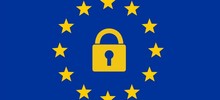What Is GDPR and Why It Matters For Marketers

Facebook is the advertising platform that marketers love to hate. We love it because we can target specific groups of people with a level of knowledge which boggles the minds of old-school direct marketers. We hate it because we know Facebook is tracking us and our children and knows way too much about us. To put it bluntly we want privacy for ourselves but not our target prospects. GDPR stands for General Data Protection Regulation. These European Union’s privacy regulations go into effect on May 25, 2018. European residents will get more privacy online and European businesses will face major fines for not protecting their clients and prospects privacy.
Mark Zuckerberg faced congressional committees in March over the Facebook user data getting out in the wild by their former partner Cambridge Analytics. At the time, Zuckerberg welcomed regulation. In Europe, however, he removed 1.5 billion users’ data from European to avoid the GDPR regulations for non-European users.
No GDPR Protections For 1.5 Billion Facebook Users
Some fancy footwork by Facebook saves the day for US advertisers.
Marketers may not know that they almost saw reduced ad options. If Facebook hadn’t been able to access all of its data on 1.5 billion international users outside of the U.S. and the E.U., advertisers may have seen major changes in their data availability and possibly on their marketing results beginning on May 25. As it is, they’ll likely see such changes with E.U. citizens.
You may find this strategy works for your company as well. Or you could just deliver GDPR-level privacy to all your customers and prospects. You can learn more about GDPR and how to get compliant in this timely article from Target Marketing.
A Guide To GDPR Compliance For Marketers: What Is GDPR and How to Avoid Fines
GDPR regulators are going to want to know that the data brands have on private EU citizens came from those consumers opting in to become customers and selected their preferences regarding how they wanted their data to be used. Marketers will need to obtain this consent before using customer data. EU citizens also have a right to be erased from databases.
So lists are a huge caution.
“We marketers don’t own customer data — we borrow it,” Nance says. “Customers trust us with it and expect that we use it to provide them with personalized and relevant content that engages and delivers interesting products they may purchase. But one too many brands have exploited their customers’ data, selling email lists; opting customers in for dozens of email communications; and not providing safeguards for consumers to opt out. Simply put, companies should not be marketing to consumers who haven’t given them their consent.”
I encourage you to read the rest of this article even if all your customers and prospects are from the US. You may face similar regulation in the future.
How Looming Privacy Regulations May Strengthen Facebook and Google
The New York Times reported that these new regulations may actually strengthen Google and Facebook against future competitors. We’ll see.
Giovanni Buttarelli, the European data protection supervisor who was involved in the creation of privacy rules, said much of the impact would be determined by regulators who enact the law and who will be up against well-funded teams of lobbyists and lawyers. Google and Facebook will be overseen by the Irish data authority because their European headquarters are in Ireland. Mr. Buttarelli noted that Europe had staff of about 2,500 across all the countries working on the issue.
“That’s peanuts compared to the lobbyists in Brussels and Strasbourg,” he said, referring to the cities where the European Commission and Parliament operate.
He said large technology companies had advantages but would also be under a microscope. Enforcement of the law is skewed to companies that handle the most personal data.
“There are pros and cons to being a tech giant,” he said. “We want to treat small and medium-sized businesses differently.”
https://www.nytimes.com/2018/04/23/technology/privacy-regulation-facebook-google.html
